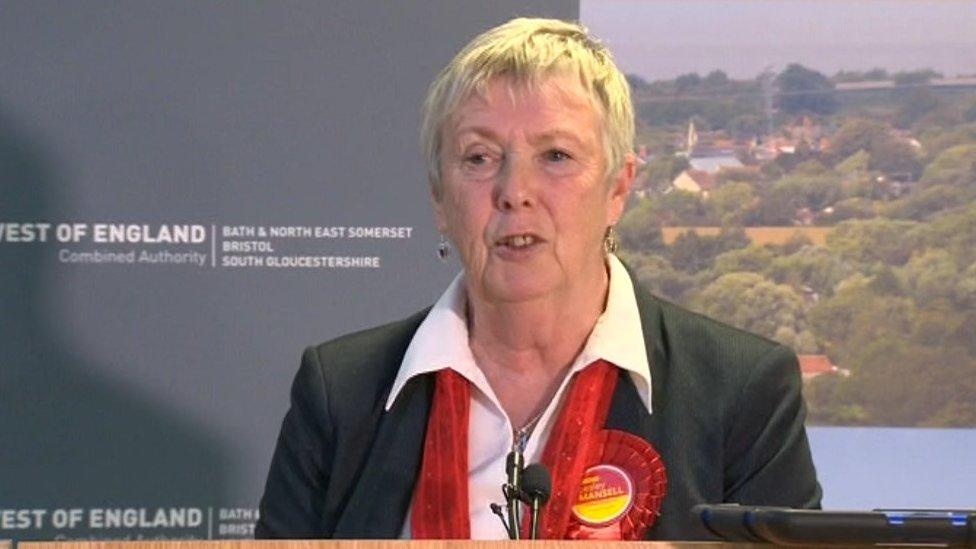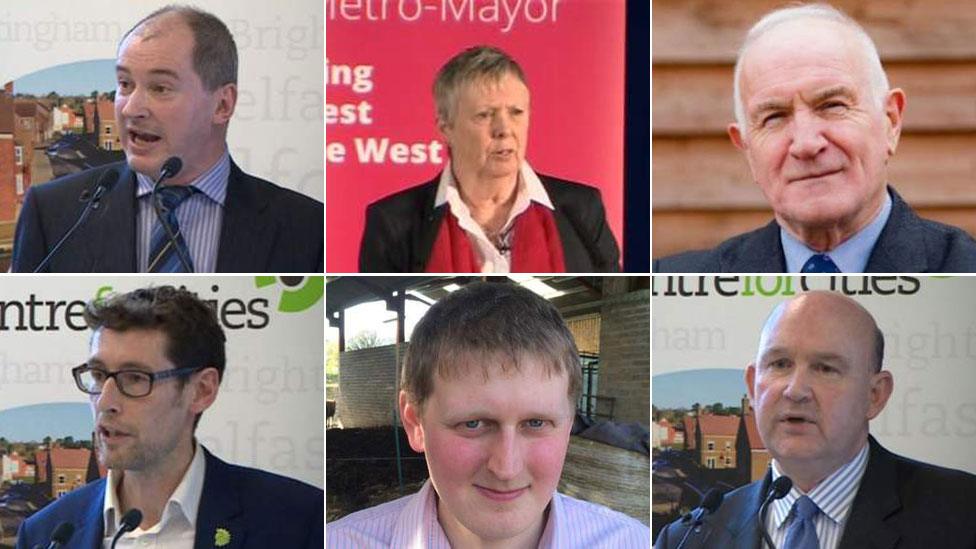Tory Tim Bowles elected West of England mayor
- Published
Conservative mayor Tim Bowles speaks of his pride in being elected.
Conservative Tim Bowles has been elected as the first West of England combined authority mayor.
Mr Bowles beat Labour candidate Lesley Ann Mansell after second preference votes were counted.
Neither candidate reached the required 50% threshold to secure an initial victory, leading to second choice votes being counted from eliminated candidates.
Turnout was only 29.7%, with 199,519 voting out of a possible 671,280.
Election 2017: Full results from across England
Mr Bowles secured a total of 70,300 votes following the second preference count, compared to Ms Mansell's 65,923.
He said: "From a personal perspective, I am honoured to be elected the first West of England regional mayor.
"I really look forward to working on behalf of everybody in the region to make the improvements we have all recognised throughout all of the campaign ... and to make the real differences for everybody throughout the region."

Labour candidate Lesley Ann Mansell said she helped to bring a message of hope to voters
The metro mayor role covers the Bristol, South Gloucestershire and Bath and North East Somerset council areas.
The £62,000 salaried post is part of government efforts to devolve more power to the regions over key issues such as planning and roads.
As part of the devolution deal, the West of England Combined Authority will be given £1bn over 30 years to help plan new homes, regional transport and business growth.
Ms Mansell said: "We turned up the vote in the Labour constituencies and we have taken Labour's message of hope deep into Conservative constituencies and won 43,000 [first preference] votes.
"We've done that by talking to voters on the doorstep, addressing issues and pushing for a fairer and more just society."
While councillors are elected by a simple majority, the combined authority mayors are being chosen under the supplementary voting system - giving people a first and second choice.
It means that if no candidate has won at least 50% of the vote, the top two candidates go to a second round with the second choice votes counted of everyone whose first choice was eliminated.
- Published5 April 2017
